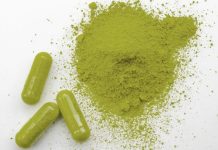Inflammation is the biological process of the immune system when an intruder, like a virus or bacteria, enters the body. During the process, the body generates cells that either trap the invaders or heal the injured tissues. When that happens, you may experience bruising, swelling, and pain as the buildup of tissues presses against the deep nerves and triggers pain receptors. Needless to say, inflammation is an essential part of your body’s defense mechanism,
However, the immune system can sometimes perceive its own tissues as intruders. As a result, it may indiscriminately trigger the inflammation process alongside the negative effects.
This issue often occurs in people with inflammatory disorders, like diabetes and arthritis. Of course, there are several ways to resolve or at least minimize its effects. One particular solution that people have recently been paying attention to is the use of cannabidiol (CBD). If you wish to learn more about this subject matter, here are four things you need to know:
1. CBD Is Non-Psychoactive

Studies have shown that CBD may be effective in treating inflammation. However, due to its alleged side effects, which have yet to be proven, many people steer away from its use. If you wish to treat inflammation with CBD, then it’d be best to have an understanding of how it works and its possible risks. In particular, you must be aware of how CBD works as opposed to tetrahydrocannabinol (THC), one of the active ingredients of marijuana alongside CBD.
To start with, it’s important to understand that the psychoactive property of marijuana comes from THC. It’s the reason why people get high and experience withdrawals from marijuana. These have nothing to do with CBD, and you’ll rarely, if at all, experience CBD withdrawals.
On the contrary, studies have found that CBD may actually help with withdrawal symptoms from THC, alcohol, cigarettes, and other products. Put simply, if you wish to treat inflammation with CBD, you shouldn’t worry about withdrawals as it comes from a different cannabinoid.
2. CBD Can Potentially Treat Inflammation
CBD has been a topic of interest in many research studies for the past few years. While there may be skeptics, many research studies claim that CBD may be effective in addressing inflammation.
Here’s a look at some examples of these studies:
- A 2019 study shows that CBD consumption in humans reduces the levels of cytokines cells that promote inflammation. The compound also inhibits certain body processes that promote inflammation, like the migration and adhesion of immune cells. In doing so, CBD was able to bring anti-inflammatory effects to the body, albeit indirectly.
- A 2021 clinical study shows that high doses of CBD in guinea pigs inhibit the effects of neutrophils, a type of white blood cell, and the first responders to inflammation.
- A 2022 research study found that cannabidiol could minimize the cytokine production associated with inflammation by suppressing the body’s immune responses.
By looking at these studies, it’s safe to assume that CBD has the potential to be an excellent treatment option for inflammatory disorders. It’s also worth noting that these research papers studied different types of inflammation. The 2021 study focused on inflammation caused by rheumatoid arthritis, while the 2022 research paper studied the effects of CBD on acne-induced inflammation. And, as one might imagine, they both have similar positive results.
Therefore, researchers are able to rule out the hypothesis that CBD and its corollary products work on different types of inflammatory disorders, which leads to the next topic.
3. There Are Two Types Of Inflammation
There are generally two types of inflammation:
- Acute inflammation is the body’s response when it detects sudden damage, such as when you cut your hand. The body sends inflammatory cells to heal the tissue. It doesn’t pose any severe risk as it’s the natural response of the body to danger. Examples of acute inflammation are the flu, the common cold, headaches, and joint pain.
- Chronic inflammation occurs when the body sends inflammatory cells to your tissues despite the lack of intruders in the body. It typically takes place after an injury, and the body’s immune system remains in a constant state of high alert and can sometimes respond indiscriminately. Whenever that happens, you may experience the normal side effects of inflammation, which include bruising, swelling, redness, and pain. Chronic inflammation can last for prolonged periods of months or even years. Examples include rheumatoid arthritis, acne, hepatitis, celiac disease, and asthma.
Although one is clearly worse than the other, CBD may effectively work on both types. You can consume CBD to help relieve pain from sports injuries, like sprains and strains, in the same way you may be relieved of pain from arthritis. But, of course, the dosage will depend on the type.
4. There’s A Right Dose Of CBD For Inflammation
Although CBD products aren’t exactly what you’d call an orthodox medication, they’re still technically medication. And, just like any other medication, there’s a right dosage for it.
That ‘right’ would depend on several factors, such as
- your weight
- the type of CBD product
- your tolerance
- the condition you’re treating, which, in this case, is inflammation
As a general rule of thumb, it’d be ideal to start with a smaller dosage, preferably 20 to 40 mg each day, and then gradually increasing as you continue the treatment plan.
However, while you can always look for the ‘right’ dosage through the Internet, the safest way is to simply ask your doctor. Since they have an understanding of your family health history and genetics, their opinion would be the most accurate. They may also explain the potential risks of CBD, although, at this point, you should now have a basic understanding of that subject.
Parting Words
Based on recent studies, there’s no denying that CBD possesses anti-inflammatory properties. Therefore, you may use it to treat or, at least, minimize the symptoms associated with inflammatory disorders. However, much like any other medication, it’s not supposed to be a standalone solution. If you truly wish to treat inflammation, you must make other changes to your lifestyle, like eating more anti-inflammatory foods and exercising regularly.




